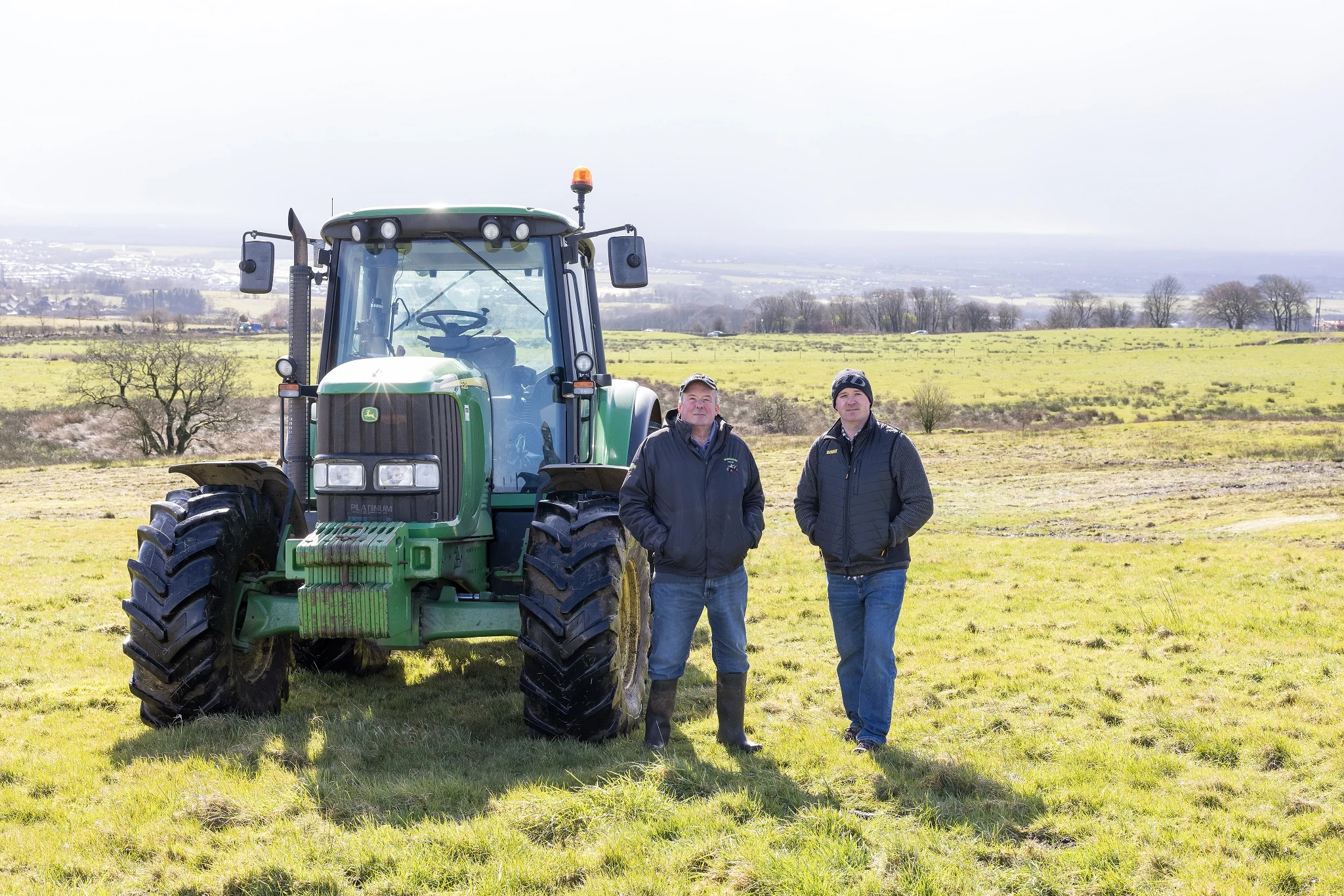
Partner Article
Nature restoration specialists sign 30-year deal with Bolton landowner to help developers deliver biodiversity
A FARMER from Bolton has committed to a 30-year deal to help mitigate biodiversity loss in association with nature recovery specialists, Environment Bank, helping house builders and developers in the North West meet new legal biodiversity net gain (BNG) requirements under The Environment Act.
The BNG Units raised as part of the deal will be sold by Environment Bank to local housebuilders and developers, who from November must demonstrate how they are supporting biodiversity restoration, in order to gain planning consent for new construction projects.
Like many landowners, Richard Pendlebury, of Yate Fold Farm near Bolton, Greater Manchester, had found making an income from his land no longer financially viable, due to rising costs and plummeting returns and needed a new plan for the farm to continue profitably.
Pioneered by Environment Bank, an organisation that operates across the nation to mitigate biodiversity loss by facilitating investment in nature, Richard is creating a 121-acre Habitat Bank on the family’s Yate Fold Farm, a former dairy farm on the outskirts of the city centre, planting new meadows, trees, and wildflowers.
Talking about the deal, Environment Bank general counsel Alexa Culver, said: “We are seeing increased demand for BNG Units from housebuilders and developers right across England. Manchester in particular continues to see strong growth in terms of infrastructure - from houses to commercial premises, roads and industrial units. There’s a huge demand for BNG Units and our Habitat Bank in Bolton is adjacent to the city and able to provide an end-to-end solution to those developers looking to meet their legal duties.”
Continuing, principal ecologist Fleur Wilson said: “The Bolton Habitat Bank promises to deliver significant gains for nature as well as for the family.
“It’s exciting to think of the benefits of this biologically diverse landscape, especially one in such an area of mass development, to be able to welcome back breeds of birds like curlew and lapwing, both of which are species in danger of extinction.”
In the past five decades, the UK has lost 60% of its biodiversity, which directly impacts its ability to combat climate change. By restoring lost biodiversity, some of the worst effects of climate change, such as flooding, can be mitigated.
Mr Pendlebury said: “Once making an income from our land became no longer financially viable, we knew diversification was our only option. We turned to biodiversity restoration because it helps nature’s recovery but it also allows us to secure the future of our farm.
“With the help of Environment Bank, our process will mirror the regenerative farming model, as we’ll be welcoming a new herd of cattle to graze the land and encourage the regrowth of grass.
“Farming can be turbulent, but this project will afford us some financial certainty. Environment Bank has forward funded the process, which gives us a greater degree of control over our income and helps immensely with planning for the future.”
The Habitat Bank at Yate Fold Farm is currently underway and Richard and his family hope to eventually open the Habitat Bank to the public, allowing Manchester’s city dwellers access to nature. BNG Units are currently being raised on the land.
This was posted in Bdaily's Members' News section by Rachel McBryde .






 A legacy in stone and spirit
A legacy in stone and spirit
 Shaping the future: Your guide to planning reforms
Shaping the future: Your guide to planning reforms
 The future direction of expert witness services
The future direction of expert witness services
 Getting people into gear for a workplace return
Getting people into gear for a workplace return
 What to expect in the Spring Statement
What to expect in the Spring Statement
 Sunderland leading way in UK office supply market
Sunderland leading way in UK office supply market
 Key construction developments in 2025
Key construction developments in 2025
 Mediation must be part of planning process
Mediation must be part of planning process
 From apprentice to chief financial officer
From apprentice to chief financial officer
 Don't stifle growth with apprenticeship cuts
Don't stifle growth with apprenticeship cuts
 The start-up landscape: What lies ahead in 2025
The start-up landscape: What lies ahead in 2025
 JATCO adds welcome drive to automotive sector
JATCO adds welcome drive to automotive sector